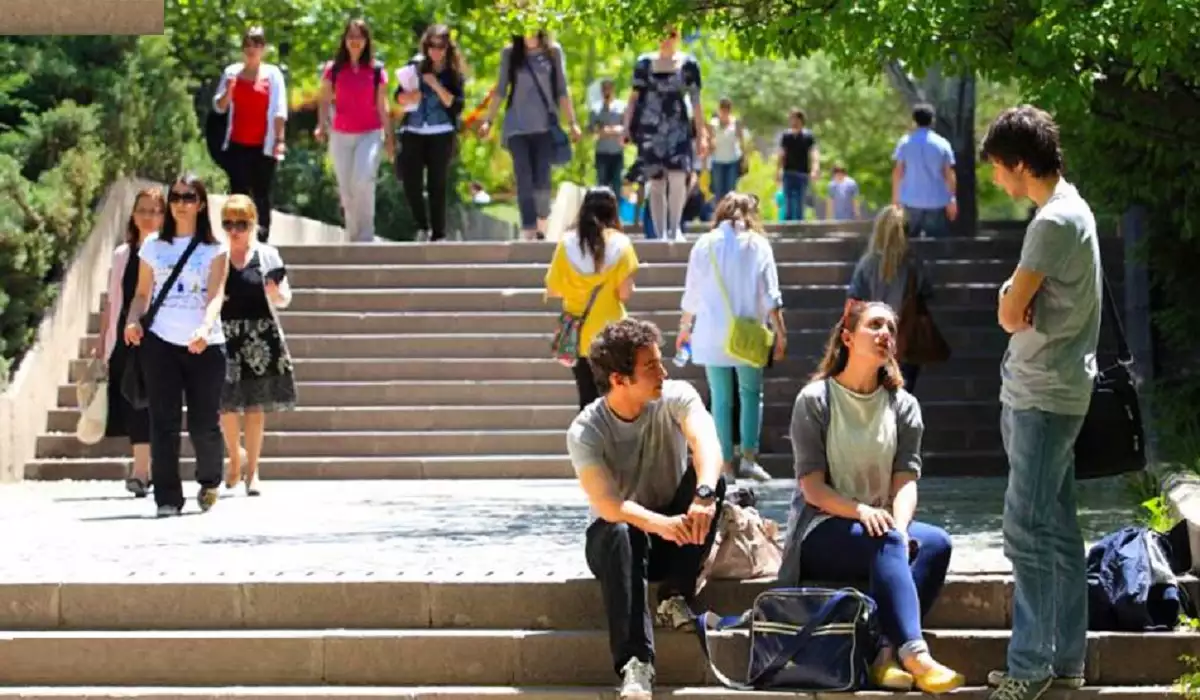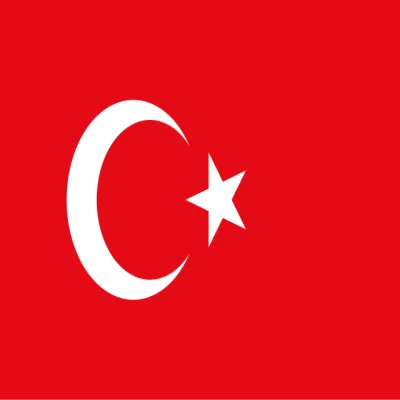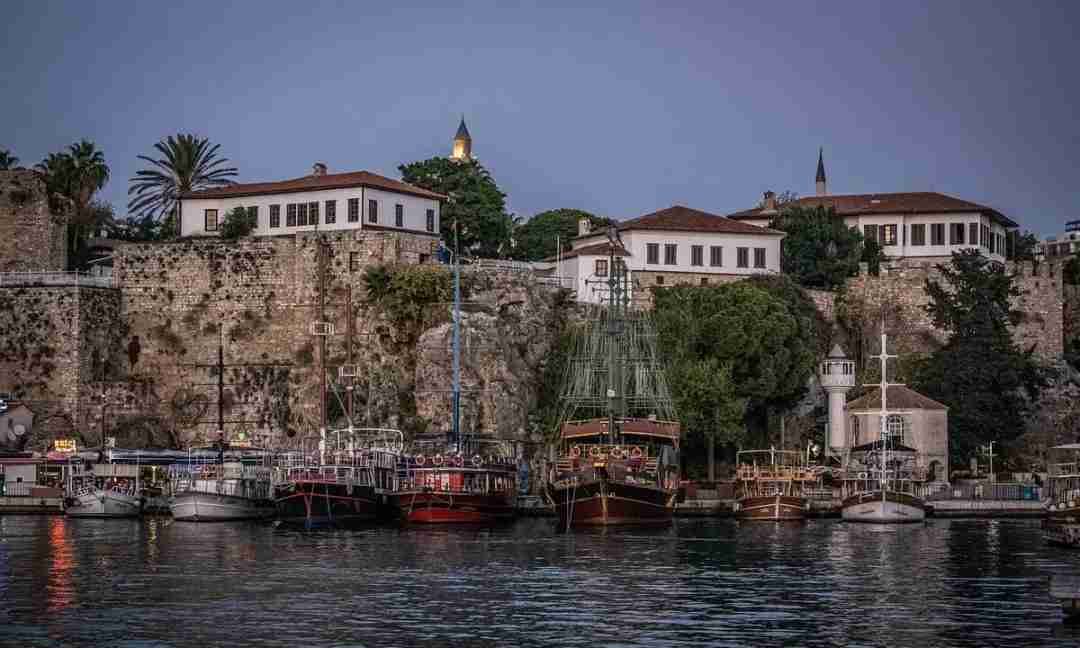By Justin Mays:
Turkey becomes the hub for international students by providing them with high-quality education, hospitality, and a diversified culture. The country is a mix of European charm and Asian appeal. Students get the best of both worlds thanks to a social and cultural mix that will spice up their lives. International students decide to study in Turkey and it's not surprising because, with a 94.2% schooling rate, it holds the second rank in the world in terms of access o higher education. Turkey implements European processes in the education area and the degree you receive from a Turkish university is recognized in all European countries. In this blog, we'll know more about the colleges & universities, the cost of education, and other conditions for studying in Turkey.
Why is studying in Istanbul one of the choices of international students?
Turkey is the bridge between the East and West. It links Asia and Europe and is close to Africa. Turkey becomes one of the best ten most preferred destinations for international students as well as one of the fast-growing economies in the last decade. The Turkish government, Council of Higher Education, and Universities took many steps to encourage international students to study in the country such as withdrawing the central placement exam for admission to Turkey Universities and vesting each University to determine its admission criteria. Here are some solid reasons why Turkey is becoming students' favorite:
Cost of living and studying- Turkey is affordable in terms of life and education compared to Europe, the USA, Australia, and Canada for international students with no compromise on quality.
Perfect to live- Studying abroad is not just attending a university in a foreign country. Turkey is the destination of different cultures, religions, people, lifestyles, and different cuisines.
Quality of education- Turkish universities are getting global recognition with their world-class education standards and wide range of options for international students.
Amenities and campuses- The university buildings in Turkey are both historical and modern with the best facilities and the right atmosphere for international students. There are food courts, restaurants, coffee shops, 24x7 libraries, career services, banks, well-being and disability services, sports, fitness and health, and many other social clubs.
Scholarships- Every year the Turkish government grants more than 4000 scholarships for students worldwide in different Turkish Universities and different programs.
Location- Turkey's geographical features attract many people from all over the world. For example, Istanbul is the only city in the world that connects the two continents (Asia and Europe). Turkey is a successful blend of two cultures and historical heritage for thousands of years.
Weather- Turkey is a four-season country making it a year-round destination for travelers. Students can have something exciting coming with every weather throughout the year.
Tourism- The Turkish people are legendary at hospitality. People do their utmost to help students with all sincerity and friendliness. It is one of the most tourist destinations around the world with a multi-culture environment and the Turkish Menu is one of the tastiest.
How many universities and colleges are there to study in Istanbul?
There is a total of 58 universities in Istanbul. 13 universities are State-owned and 45 are Private. Istanbul university is one of the world's oldest universities founded in the form of a madrasa (theological school) by Sultan Mehmet II. Istanbul University is also the biggest one in Istanbul, with more than 130 thousand students and 6 thousand teachers and researchers as faculties.
The majority of the top universities in Turkey features in QS world university rankings 2019 are located in either Ankara or Istanbul. In Ankara, you’ll find Middle East Technical University, Bilkent University, and Hacettepe University ranked in the top 50). Istanbul is home to Bogazici University, Koc University, Sabanci University, Istanbul Technical University, and Istanbul University ranked within the top 30.
Language Requirement for study in Istanbul, Turkey
To apply to one of the best universities, you may need proof of English proficiency. You can take several standardized English tests such as the PTE (Pearson Test of English), TOEFL (Test of English as a Foreign Language), CAE (Cambridge Advanced English), and IELTS (International English Language Testing System), offered by the British Council and IDP. IELTS is the most popular of these tests. In some universities, Turkish is an elective course while in others it is compulsory. For example, all medicine and dentistry students must learn Turkish for two-thirds of their program.
Turkish is the main working language in most universities and Turkish language proficiency is a prerequisite for admission to many academic programs. International students are given the opportunity to attend Turkish preparatory courses after getting admission to undergraduate or graduate programs at many universities. For a reasonable fee, or in some cases, you pay a reasonable fee. For free classes, you usually get 4-6 hours of language lessons per day at different levels.
By the end of the preparatory school, the students take the exam and start their program at the university to where they are admitted (in the case of a certain level of language proficiency required). You are also provided with supportive Turkish language courses apart from the preparatory school at the school where you have enrolled.
Students enrolled in a university within the scope of Turkish scholarships that fulfill the expenses such as university contribution, dorm fee, and general health insurance are also eligible to receive free Turkish education for an academic year. Toward the end of the preparatory year, the students are expected to receive a Turkish proficiency certificate at level C1 and continue their university education. Students who can't make it to the certificate are entitled to another attempt until the beginning of the next academic year.
Cost of studying in Istanbul for international students?
In Turkey, studying at public universities is inexpensive compared to institutions in Europe and the United States. While some private universities offer budget-friendly courses, most degrees are already expensive, especially the engineering and medicine programs. Studying in Turkey for international students is not much pricey. The tuition fee varies on the university and the course you select. Of course, private Turkish universities are more expensive than public ones. There are academic courses with reasonable tuition fees, but some degrees may cost you over 22,000 USD per year. On average, you can expect the tuition fee in the universities in Turkey per academic year as:
For Bachelors in English: 3500– 12000 Turkish lira
For Bachelors in Turkish: 1860 – 6000 Turkish lira
For Masters in English: 4500– 7000 Turkish lira
For masters in Turkish: 2300– 5000 Turkish lira
Books and administrative fees are around 100 to 150 US dollars per semester.
What are the conditions for applying to study in Turkey?
Turkey’s application process is more similar to that of the United States than European countries. You are required to apply to each school you want to attend individually rather than through a central application system. Before you start applying, collect the documents required by the institute and course.
Steps to apply for a course program in a Turkish university:
Select a program and the university that offers to teach it.
Learn about scholarships and financing. Know the fee to be paid.
Prepare your application documents as required by the university.
Check exam requirements and take the tests.
Apply for a student visa for the time you will be in Turkey
Documents that you must have along with the application fee:
Your high school certificate or a document summarizing your grades
Certificates of any other academic programs
Language proficiency score in English and/or Turkish
Letter of motivation
A letter confirming that you have the funds to cover your tuition fees
For postgraduate and Ph.D. studies, you might also need to include a professional CV. Carefully fill in all the details and keep all confirmation of application letters and receipts as you’ll need to attach them with your student visa application if you’re enrolled. The general high school certificate from your country will determine the university and the major subject. Only students with a bachelor's degree are eligible for post-graduation.
Turkish is the official working language in Turkey. Though the majority of programs are in Turkish, there are many programs in English as well. The universities too offer courses to prepare for the Turkish language before starting studies. If you'll be studying in English, you will have to take TOEFL, IELTS, or CAE as discussed.
You might also be interested to read about the foreign student exam (YOS) that foreign national high school diploma graduates take to enter Turkish universities.















